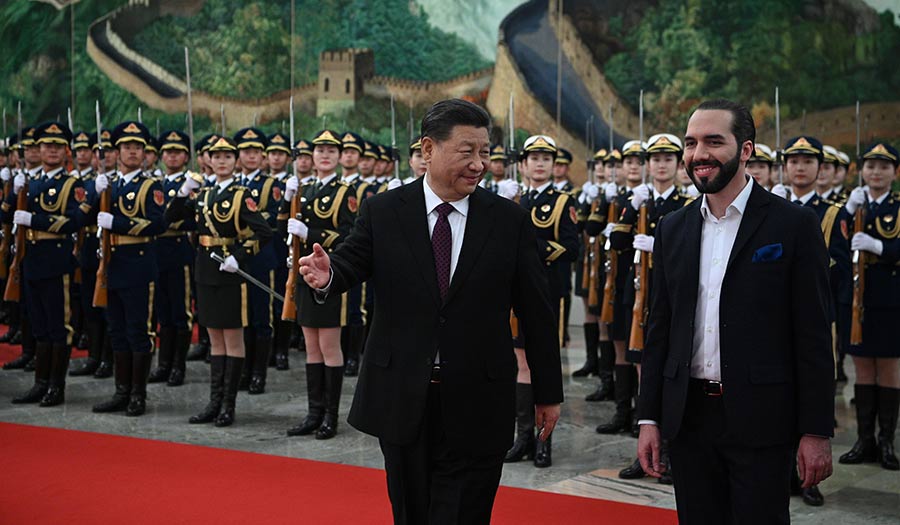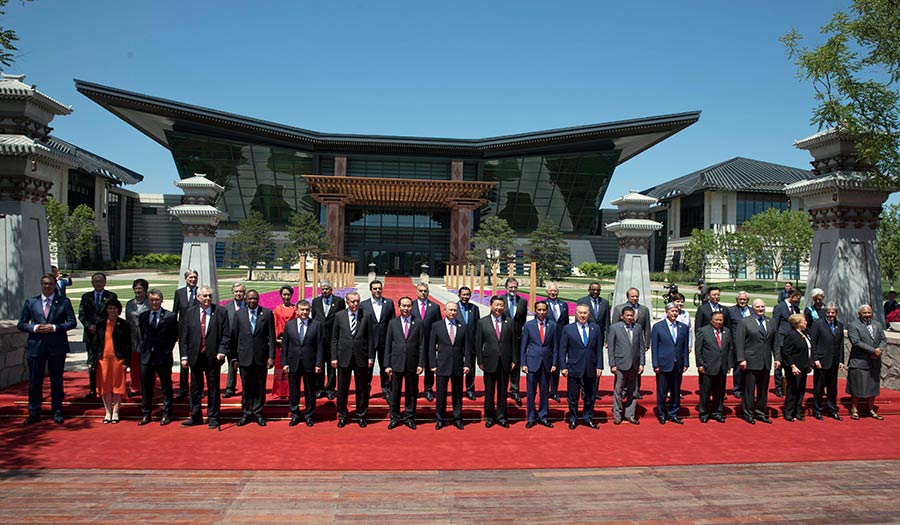 Noel Celis/AFP via Getty Images
Noel Celis/AFP via Getty Images
World News Desk
Learn the why behind the headlines.
Subscribe to the Real Truth for FREE news and analysis.
Subscribe NowBUENOS AIRES (Reuters) – Donald Trump was clear with Latin America during his four-year administration: do not do business with China. The message failed to hit home.
As President-elect Joe Biden readies to enter the White House on January 20, Beijing has tightened its grip over vast swathes of the resource-rich region once seen as the United States’ political backyard.
A Reuters investigation, including interviews with current and former officials and advisers, and an analysis of trade data, found that under Mr. Trump, China has left the United States trailing in terms of power and influence across most of Latin America.
That poses a challenge for Mr. Biden, who has pledged to restore Washington’s role as a global leader after years of Mr. Trump’s “America First” policies, and has said that slipping U.S. influence in Latin American is a threat to national security.
Since 2018, China has overtaken the United States as the biggest trade partner to Latin America—if Mexico is removed from the calculations—hoovering up Andean copper, Argentine grains and Brazilian meat.
Beijing has ramped up investment and low-interest loans to the region too, backing energy projects, solar farms, dams, ports, railway lines and highways.
Bolivian ex-President Jorge Quiroga explained the draw of China during an interview with Reuters in La Paz earlier this year, adding that along with local powerhouse Brazil it was the most important partner.
“People ask me who I prefer, the United States or Europe? I say Brazil. What about in second place? I say China. That’s the reality of South America,” Mr. Quiroga said.
China’s Interests
Officials in the region cautioned that China, a major economic and diplomatic partner for many nations, will be difficult to unseat. Billions of Chinese dollars have given crucial lifelines for indebted emerging countries, a need that has been sharpened by the impact of the coronavirus pandemic.
“I think China has more interest in Argentina than the United States has in Argentina. And that is what makes the difference,” an Argentine government official told Reuters.
China is now the number one trade partner to Brazil, Chile, Peru, Uruguay and others. It far outstrips the United States in terms of trade with Argentina.
Outside of Mexico, China’s trade with the region overtook the United States in 2018 and extended that in 2019 to more than $223 billion versus U.S. trade of $198 billion, according to an analysis of trade figures from the UN Comtrade database.
The United States does remain far larger when Mexico—its top trade partner globally last year—is included.
Economic Diplomacy
China seized the opportunity during the pandemic to deepen ties across Latin America, sending medical supplies including ventilators and masks to combat COVID-19.
In Argentina, the government has announced in recent months a flurry of new or expanded initiatives with China, vaccine trials, an extended currency swap, cooperation on space, and a Chinese military studies course for students at the South American country’s national defense college.
The two countries have discussed a potential state visit to China by President Alberto Fernandez and about Argentina joining Beijing’s signature Belt and Road Initiative.
Margaret Myers, director of the China and Latin American program at the Inter-American Dialogue, said that while Chinese sovereign lending had dipped a bit, in its place had come commercial bank financing.
“China’s economic diplomacy, whether through trade or finance, has opened a wide range of doors,” she said, citing a $2.4 billion loan to Ecuador this year by China Exim Bank.
The United States had appeared to change course in the months leading up to last month’s presidential election, rolling out its own set of initiatives in the region in a bid to compete with China, though many saw these as too little, too late.
“This is a great power competition, and it’s playing out all over the world, including Latin America,” said one senior U.S. administration official, who asked not to be named. “We have a strategy and we’re pushing back.”
Francis Fannon, State Department Assistant Secretary for Energy Resources, fresh off a visit to Brazil, Chile, Ecuador and Panama, said the pandemic risked pushing some countries in the region toward partners like China.
“With COVID, it is affecting economic decision making and is affecting the psychology of countries. We want to encourage countries to continue on the reform-minded path that they have been on,” Mr. Fannon told Reuters.
“The United States is the partner of choice. It has been, and continues to be.”
- Real Truth Magazine Articles
- INTERNATIONAL
 The New Silk Road – China’s Path to Global Authority
The New Silk Road – China’s Path to Global Authority
More on Related Topics:
- The Last U.S.-Russian Nuclear Pact Is About to Expire, Ending a Half-Century of Arms Control
- Explainer: What Is President Trump’s ‘Board of Peace’ and Who Has Joined So Far?
- China and Japan, Uneasy Neighbors in East Asia, Are at Odds Again
- Is Peace in Ukraine Any Closer After Trump-Zelenskyy Talks?
- Explainer: Why Is Fate of Donetsk Region a Sticking Point in Talks on Ending War in Ukraine?


